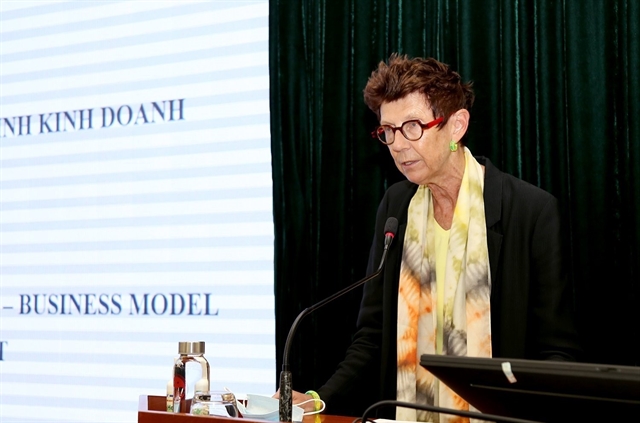By Ly Ly Cao
HÀ NỘI — As Việt Nam has embraced globalisation and has signed many trade deals with developed countries, it is essential to apply a more sustainable development model to attract more conglomerates and capital flows.
To learn more about successful models, on Wednesday afternoon, the Hồ Chí Minh National Academy of Politics co-operated with the embassies of four Nordic countries – Denmark, Finland, Norway and Sweden – to hold a scientific seminar on “Environment, society and governance (ESG) – a business model for sustainable development.”
The seminar was held on the occasion of Nordic Day on March 23. This is the fourth annual event of its kind.
Speaking at the opening ceremony, Assoc. Prof. Dr. Lê Văn Lợi, Deputy Director of the academy, said that the Nordic region, including Denmark, Finland, Norway and Sweden, is an area rich in cultural and historical traditions, with spectacular growth in the economy and harmonious social development. These countries’ per capita income and people's happiness index are always at the highest position in the world rankings.
“One of the factors creating success in the development of the Nordic countries is the persistent pursuit of a sustainable development model, meaning economic growth has to go along with social justice,” Lợi said.
The Nordic countries are considered pioneers in the implementation of the Sustainable Development Goals (SDGs), so their successful experience will be a valuable lesson for Việt Nam. For Nordic institutional investors, environmental, social and governance factors have long been recognised as an important component of investment.
“We not only provide solutions related to products, we also have a good governance system with sustainability requirements in contracts with suppliers,” Denis Brunetti, President of Ericsson Việt Nam, said at the seminar.
“We always have agreements and regulations on the behaviour and ethics of suppliers. We include provisions relating to good business practices, ethics, integrity and employment law in the contracts.”
“In Việt Nam, we also carry out activities to guarantee the ESG. We have signed many free trade agreements (FTAs) with the Government, and they all require local businesses to comply with Vietnamese regulations.”
“On the other hand, Ericsson Việt Nam must ensure the requirements of the Vietnamese Government like companies doing business here.”

At the seminar, Norwegian Ambassador to Việt Nam, Grete Lochen said that this year’s theme of Nordic Day is the environmental, social and governance agenda, which is an important factor for Việt Nam to succeed in the process of green and sustainable economic recovery from the COVID-19 pandemic.
In the last decade, Europe has witnessed unprecedented development in sustainable investment, including commitments on the Paris Agreement on climate, reduction in fossil fuel usage, and rising demand for sustainable products and services.
High quality foreign direct investment (FDI) businesses are looking for developing and emerging economies that emphasise the adherence to ESG principles, while investors increasingly attach importance to ESG issues in an effort to reduce the risk of their investment. Therefore, it is necessary for Vietnamese enterprises and the Government to find and implement appropriate sustainable models to catch up with global trends.
While the ESG was created for the private sector, this approach would effectively address more issues if there is cooperation between the public and private sectors.
Ensuring sustainable use of energy and resources, creating social security policies, and combating corruption are tasks in which both public and private entities play an essential role. VNS